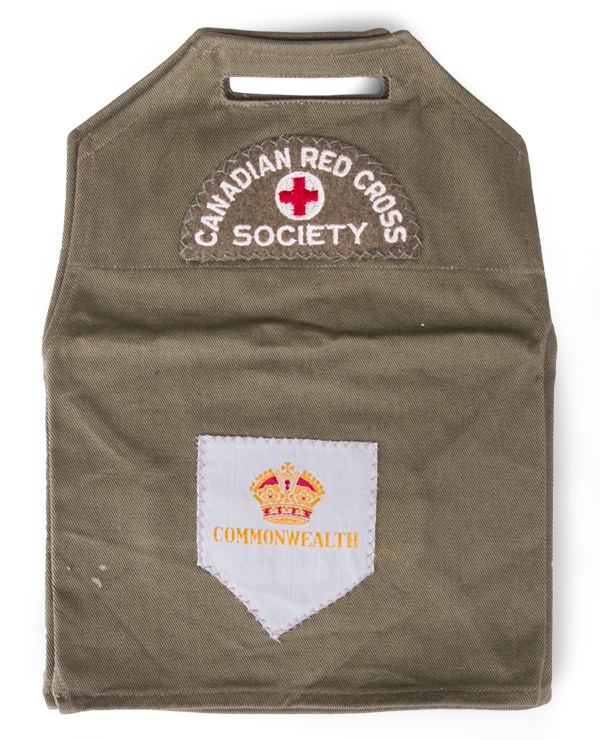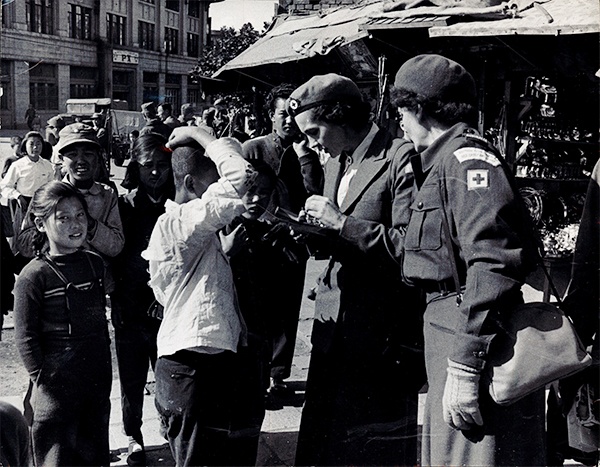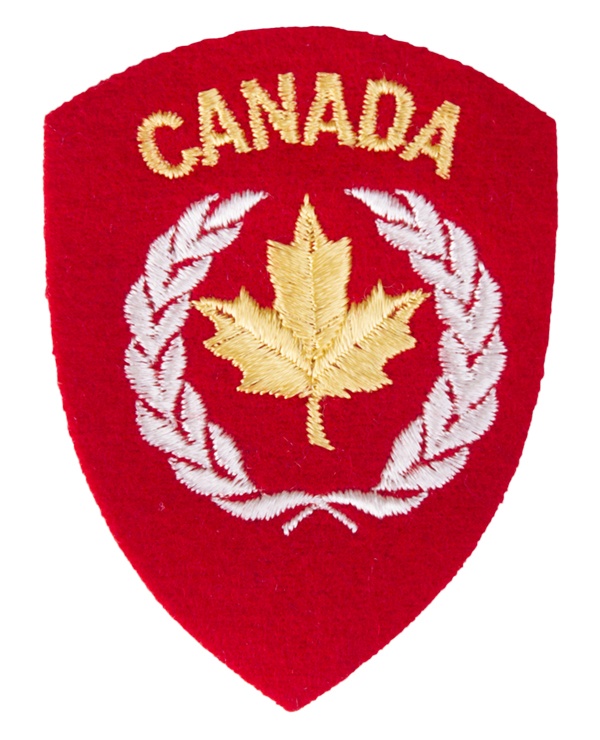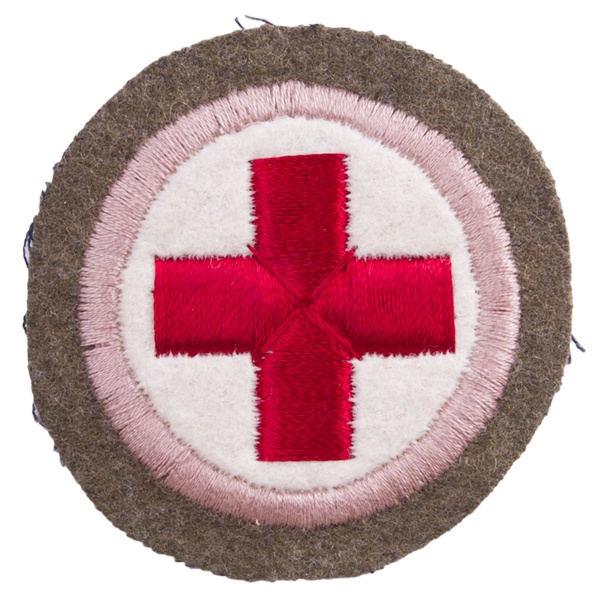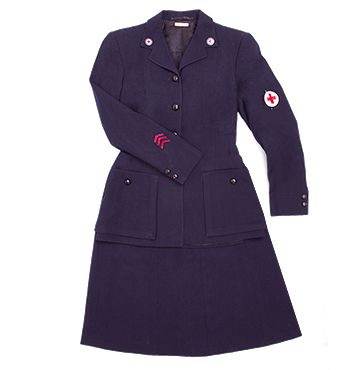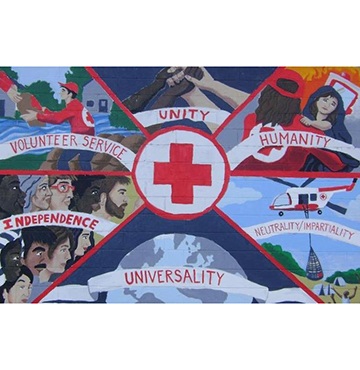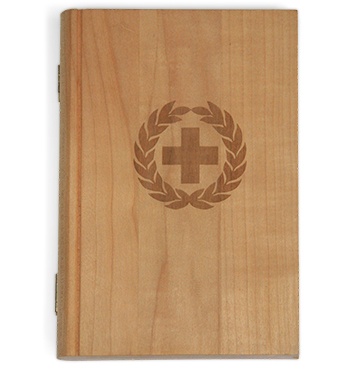Far East Welfare Team Badges
The Korean War (1950-53) saw several varieties of Canadian Red Cross involvement. The society provided a medical-social team for relief work with refugees in South Korea, a neutral observer of POW camps, and a team of women volunteers who worked with Canadian servicemen. The latter, known as the Far East Welfare Team, wore badges like these on their uniforms, as a form of identification.
Barely five years after the end of the Second World War (1939-45), Canadian troops were again deployed overseas, this time as part of a United Nations force intervening in the war between South Korea and North Korea. Many Canadians were uninterested in the Cold War geopolitics that fuelled Western involvement in the war, and because the Canadian military force sent to Korea was much smaller than its Second World War equivalent, the government was better able to supply its needs on its own.
Nonetheless, the Canadian Red Cross fulfilled its mandate to aid the sick, wounded, and captured in wartime. On a much smaller scale, the society provided the same kinds of comforts and supplementary hospital supplies it had done in the previous war. These comforts and supplies were often created by women who had also been active in Second World War sewing circles, but also by children enrolled in the school-based Junior Red Cross.
"In spite of everything we do feel we are accomplishing something of our mission."
The women of the Far East Welfare Team travelled to Japan and South Korea, where they provided welfare and recreational services to Canadian and other British Commonwealth troops on leave, in the tradition of the Second World War’s Overseas Detachment of the Canadian Red Cross Corps. In this war, the Red Cross was the only Canadian voluntary organization allowed by the Department of National Defence to offer such services overseas. Military officers observed a noticeable improvement in morale among their men, once the Far East Welfare Team arrived overseas.
Vancouverite Jack Purves served as a Welfare Officer on a Canadian Red Cross medical-social team sent to work with refugees in South Korea. “The dirt and misery of these people cannot be described,” he reported in July 1951, but “in spite of everything we do feel we are accomplishing something of our mission.” The Canadian Red Cross’s National Director of First Aid, Albert Batten later served as the only Canadian member of the several international teams appointed to observe conditions in North Korea’s POW camps in 1953.
The Korean War (1950-53) saw several varieties of Canadian Red Cross involvement. The society provided a medical-social team for relief work with refugees in South Korea, a neutral observer of POW camps, and a team of women volunteers who worked with Canadian servicemen. The latter, known as the Far East Welfare Team, wore badges like these on their uniforms, as a form of identification.
Barely five years after the end of the Second World War (1939-45), Canadian troops were again deployed overseas, this time as part of a United Nations force intervening in the war between South Korea and North Korea. Many Canadians were uninterested in the Cold War geopolitics that fuelled Western involvement in the war, and because the Canadian military force sent to Korea was much smaller than its Second World War equivalent, the government was better able to supply its needs on its own.
Nonetheless, the Canadian Red Cross fulfilled its mandate to aid the sick, wounded, and captured in wartime. On a much smaller scale, the society provided the same kinds of comforts and supplementary hospital supplies it had done in the previous war. These comforts and supplies were often created by women who had also been active in Second World War sewing circles, but also by children enrolled in the school-based Junior Red Cross.
"In spite of everything we do feel we are accomplishing something of our mission."
The women of the Far East Welfare Team travelled to Japan and South Korea, where they provided welfare and recreational services to Canadian and other British Commonwealth troops on leave, in the tradition of the Second World War’s Overseas Detachment of the Canadian Red Cross Corps. In this war, the Red Cross was the only Canadian voluntary organization allowed by the Department of National Defence to offer such services overseas. Military officers observed a noticeable improvement in morale among their men, once the Far East Welfare Team arrived overseas.
Vancouverite Jack Purves served as a Welfare Officer on a Canadian Red Cross medical-social team sent to work with refugees in South Korea. “The dirt and misery of these people cannot be described,” he reported in July 1951, but “in spite of everything we do feel we are accomplishing something of our mission.” The Canadian Red Cross’s National Director of First Aid, Albert Batten later served as the only Canadian member of the several international teams appointed to observe conditions in North Korea’s POW camps in 1953.

